Family law disputes, such as those involving separation, divorce, child custody, or support, can be complex and emotionally draining for all parties involved. One effective and increasingly popular approach to resolving these disputes in British Columbia is family law mediation, a voluntary, non-adversarial process that allows disputing parties to work together to reach a mutually acceptable resolution. Mediation often results in more satisfying outcomes, enabling the parties to avoid costly and time-consuming court battles while minimizing the emotional strain for everyone involved.
In this article, we will discuss the family law mediation process in British Columbia and outline its potential benefits in resolving disputes amicably and efficiently. Additionally, we will explore the vital role played by a skilled family lawyer, such as those at Pathfinder Law, in guiding and representing you through mediation. Our objective is to help you understand how mediation can empower you and your family to make crucial decisions together, mitigate conflict, and move forward positively.
Navigating Family Law Mediation in British Columbia
1. Understanding Family Law Mediation
Family law mediation is a process in which a neutral, impartial mediator facilitates negotiation and communication between the disputing parties, helping them identify their interests, explore solutions, and ultimately reach a voluntary agreement that respects their needs and concerns. Mediation can cover a wide range of family law issues, such as separation agreements, property division, custody and access, child support, and spousal support.
2. The Benefits of Mediation in Resolving Family Disputes
There are several benefits of family law mediation compared to traditional litigation, including:
– Lower costs: Mediation is often more cost-effective than taking the dispute to court, as it avoids significant legal fees and court costs.
– Faster resolution: Mediation allows for a quicker settlement, as it does not require the parties to wait for court dates or verdicts.
– Control over the outcome: Parties in mediation have more say over the outcome, as they work together to develop a solution rather than relying on a judge’s decision.
– Confidentiality: Mediation is a confidential process, ensuring that sensitive information related to your family dispute remains private.
– Preservation of relationships: Mediation encourages cooperation and constructive communication, assisting parties in maintaining more amicable relationships and reducing conflict in the future.
3. The Role of Mediator in the Family Law Mediation Process
A family law mediator is an unbiased third party with specialized training in conflict resolution and family law issues. Their role is to facilitate discussions, help parties clarify their interests, explore creative solutions, and ultimately, guide the process towards a consensual resolution. Mediators do not impose decisions or advise parties on legal matters; their primary goal is to empower participants to find mutually satisfactory solutions on their own terms.
4. How a Family Lawyer Can Support You in Mediation
While mediators facilitate the negotiation process, a family lawyer plays an essential role in representing your interests and providing expert guidance throughout mediation. Here are some ways a family lawyer can support you during mediation:
– Assessing the feasibility of mediation: Your family lawyer can help you determine whether mediation is a viable option for your situation by evaluating the issues involved, as well as the relationship dynamics between the parties.
– Preparing for mediation: Your attorney can assist in preparing the necessary documents, gathering evidence, and providing advice on effective communication and negotiation strategies to help you present your case persuasively.
– Legal representation during mediation sessions: Having a family lawyer by your side ensures that your rights are protected throughout the mediation process, and that you are well-informed about the legal implications of any proposed agreements.
– Reviewing and drafting agreements: Once an agreement is reached during mediation, your family lawyer can review and draft the legal documents required to formalize the agreement, ensuring that it is legally sound and enforceable.
Embracing a Positive Future: Moving Forward After Mediation
Successful family law mediation can have a lasting positive impact on the family dynamics and relationships involved. It encourages active participation, mutual respect, and effective communication, empowering families to constructively address their issues and create a strong foundation for future cooperation. Following a successful mediation, it is crucial to maintain open and respectful communication and to seek ongoing support from experienced family lawyers, like those at Pathfinder Law, to ensure any future disagreements or legal matters are addressed promptly and effectively.
Conclusion
Family law mediation is an effective and empowering alternative to traditional litigation in resolving family disputes in British Columbia. It provides a less adversarial, more collaborative approach to reaching fair and satisfying resolutions that preserve relationships and secure a positive future for all parties involved. By enlisting the assistance of Pathfinder Law, you can navigate the complexities of family law in Abbotsford with confidence and compassion, assured that your rights and best interests are protected every step of the way. Trust our experienced team to guide you through the mediation process and help you build a solid foundation for a harmonious and united future for your family.


